Women refugees: leaders and resilient problem solvers, not victims
IAWRT’s Displacement and Resilience documentary, is now being screened, stimulating discussion on refugees and the IAWRT global film making model which facilitates local control over the telling of stories.
The film is created from shorter segments by filmmakers Erika Cruz of the Philippines, Afrah Shafiq from India, Khedija Lemkecher, Tunisia, Eva Brownstein of Canada, and a joint segment by India’s Archana Kapoor and Chandita Mukherjee who was the Executive Producer of the whole documentary.
“a sharp indictment of the lack of humanity within the state and the people, while doubling up as a celebration of the enduring spirit of resistance and an effective demand of reformative practices. “ www.cinestaan.com
That was the view of one critic after the successful premiere at the15th IAWRT Asian Women’s Film Festival, New Delhi.
“IAWRT’s production is a timely and topical documentary that is as intelligent as it is poignant. It does not lose the edge of facts and stats while bringing to the forefront the emotionally
charged traumas of its subjects.” www.cinestaan.com
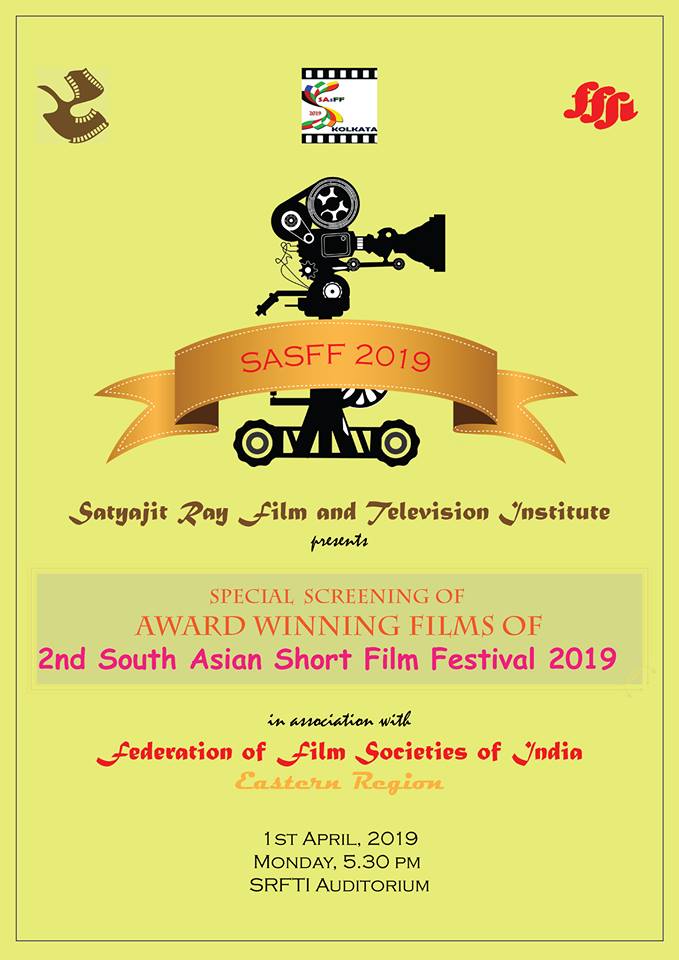 The film about Rohingya, Tibetan, Syrian, Lumad and Matigsalug women refugees, won an award later that month at the 2nd South Asian Short Film Festival, Kolkata, organised by the Federation of Film Societies of India. The prize was for best documentary in the 40- 60 minutes category, called the P.K. Nair Award.
The film about Rohingya, Tibetan, Syrian, Lumad and Matigsalug women refugees, won an award later that month at the 2nd South Asian Short Film Festival, Kolkata, organised by the Federation of Film Societies of India. The prize was for best documentary in the 40- 60 minutes category, called the P.K. Nair Award.
“Homeless and country-less, refugees pay the price for wars and purges. The film takes us deep into their psyche and focuses on the humanitarian work being done for their rehabilitation.” P.K. Nair Award, jury citation
Prize-winners at the festival were screened for students of the six disciplines of film-making taught at the Satyajit Ray Film & Television Institute, Kolkata, on April 1, 2019.
It has been shown at the conference of the Canadian Association for Refugee and Forced Migration Studies at the Centre for Refugee Studies, York University, Toronto, Canada on May 14th, 2019, The screening was followed by a discussion amongst the academic delegates.
“People thought it was very beautiful and they appreciated the breadth of forced migration that was represented, and how women were depicted as leaders and resilient problem solvers, not just victims.” Conference organiser, Michaela Hynie
Displacement and Resilience also became a part of a special day-long event, called Migration Museum at Godrej India Culture Lab, Mumbai June 8th..This enquired into migration through conversations, poetry, films and art. It explored issues of identity in the context of migration. It was a graduation project of Godrej India Culture Lab’s Leadership Programme which aims to train managers of cultural institutions. The film was very well received by the audience of 450.
Later in May the producer Chandita Mukherjee says another screening triggered an enthusiastic discussion on the possibilities of collaborative filmmaking, at the Film and Television Institute of India at Pune.
“The four-week Film Appreciation Course of Summer 2019 held at the premier institute of film making in India with the aim of encouraging an informed level of writing and discourse on film in the media. journalists who write on film, television and new media, college lecturers in language and literature, and film activists.”
This screening event was able to break down the film-making process as the four 10-minute films sent by the film makers from Philippines, India, Tunisia and Canada were screened, followed by the final edited version and that gave rise to a lot of discussion.
“The course participants were enthusiastic to discuss the possibilities of collaborative film-making in the future, using internet telephony and image sharing, that would allow local stories to be told by local people, familiar with the particular language and culture as has been done in “Displacement and Resilience”.
Chandita says this is “as opposed to the way reporters from international TV channels travel to places they do not know, dealing with unfamiliar cultures and languages, giving a limited view, which becomes the authoritative voice, just because it is BBC or CNN or National Geographic and widely disseminated throughout the world”.
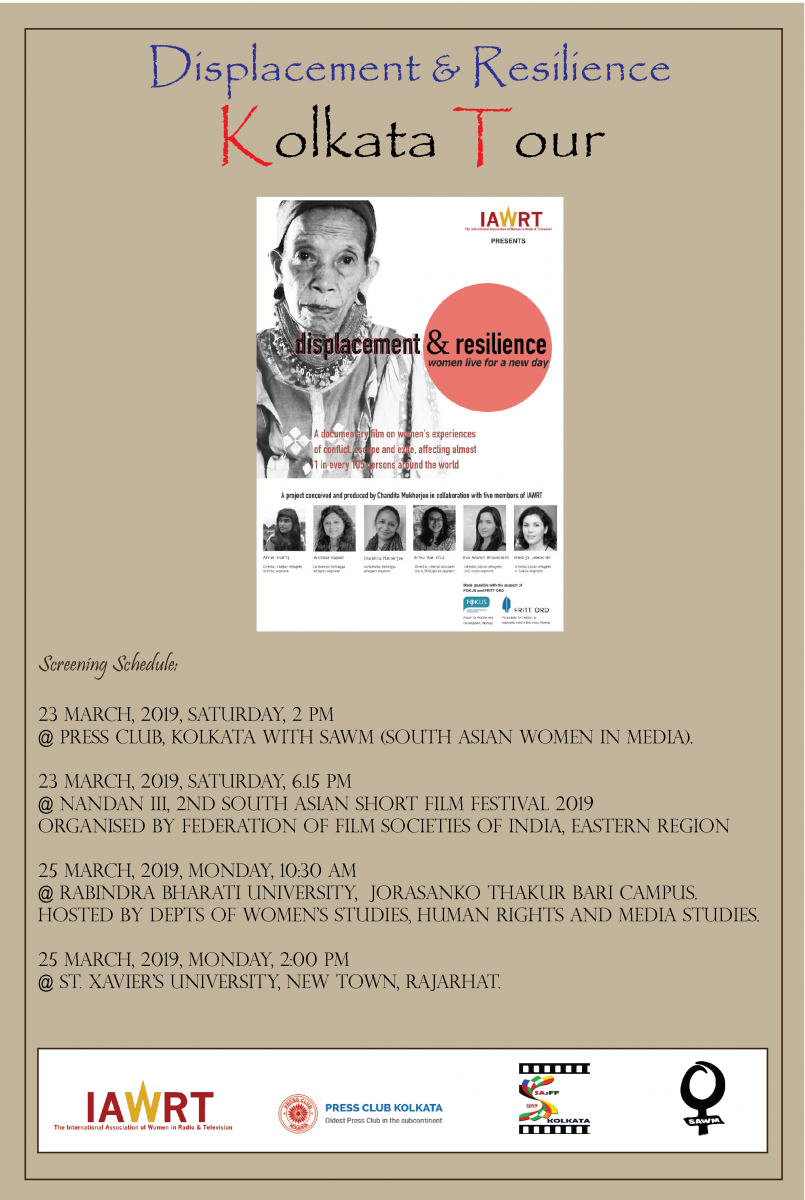
Most of the screenings so far have been spearheaded by the IAWRT India Chapter. In one instance and India board member Mausumi Bhattacharyya took one initiative when the South Asian Film Festival was on, to arrange smaller screenings in Kolkata, which she called the “Displacement & Resilience Kolkata Tour” .
Screenings included the Kolkata Press Club; Rabindra Bharati University with post-graduate students, jointly hosted by the Departments of Women’s Studies, Human Rights and Media Studies and St. Xavier’s University, Kolkata at the Mass Communication Department.
More showings
IAWRT Chapters around the globe, particularly where local directors reside, also expect to organise showings for members, to discuss both the refugee issues for women, and filmmaking to tell their stories.
Displacement and Resilience will show at the 100% Manusia Film Festival in January 2020, Indonesia, as part of a package which IAWRT India is curating from the Asian Women’s Film Festival. The film festival, held most recently in Bali, prioritises issues in human rights and diversity, encompassing gender and HIV/AIDS. It aims to promote awareness on a wide range of these issues and create platforms of opening, sharing and exchanging creativities.
In December, the Madurai International Film Festival, in India is honouring Chandita Mukherjee with a retrospective, where she will show five hours of past work, ending with the IAWRT global production.

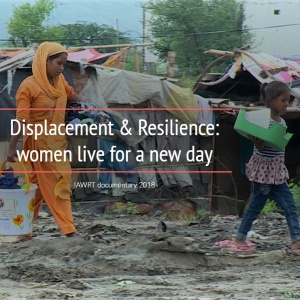
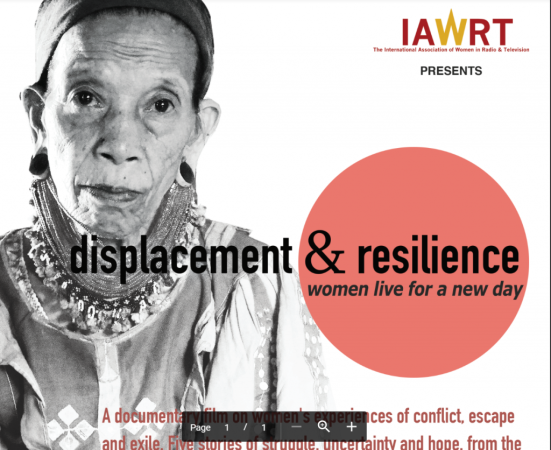
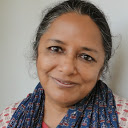 In response to a call from the IAWRT, I proposed a concept on women refugees and how they cope with being uprooted from home, which the IAWRT accepted;
In response to a call from the IAWRT, I proposed a concept on women refugees and how they cope with being uprooted from home, which the IAWRT accepted;
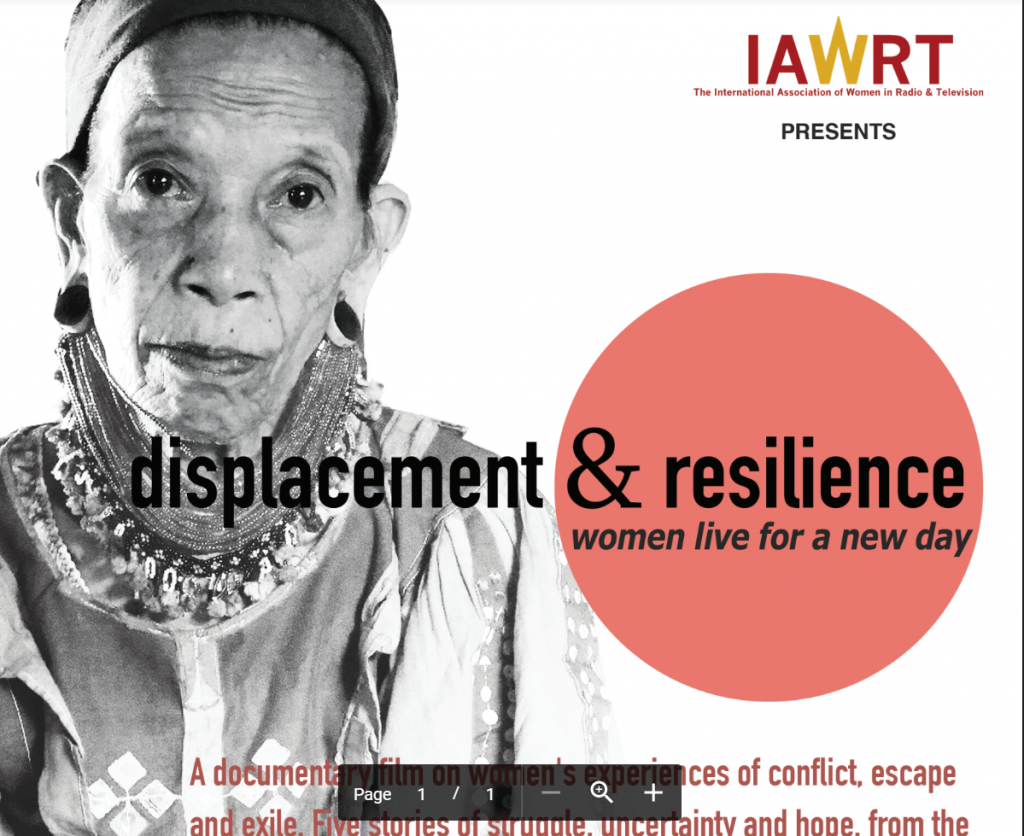 The worldwide refugee crisis and
The worldwide refugee crisis and






